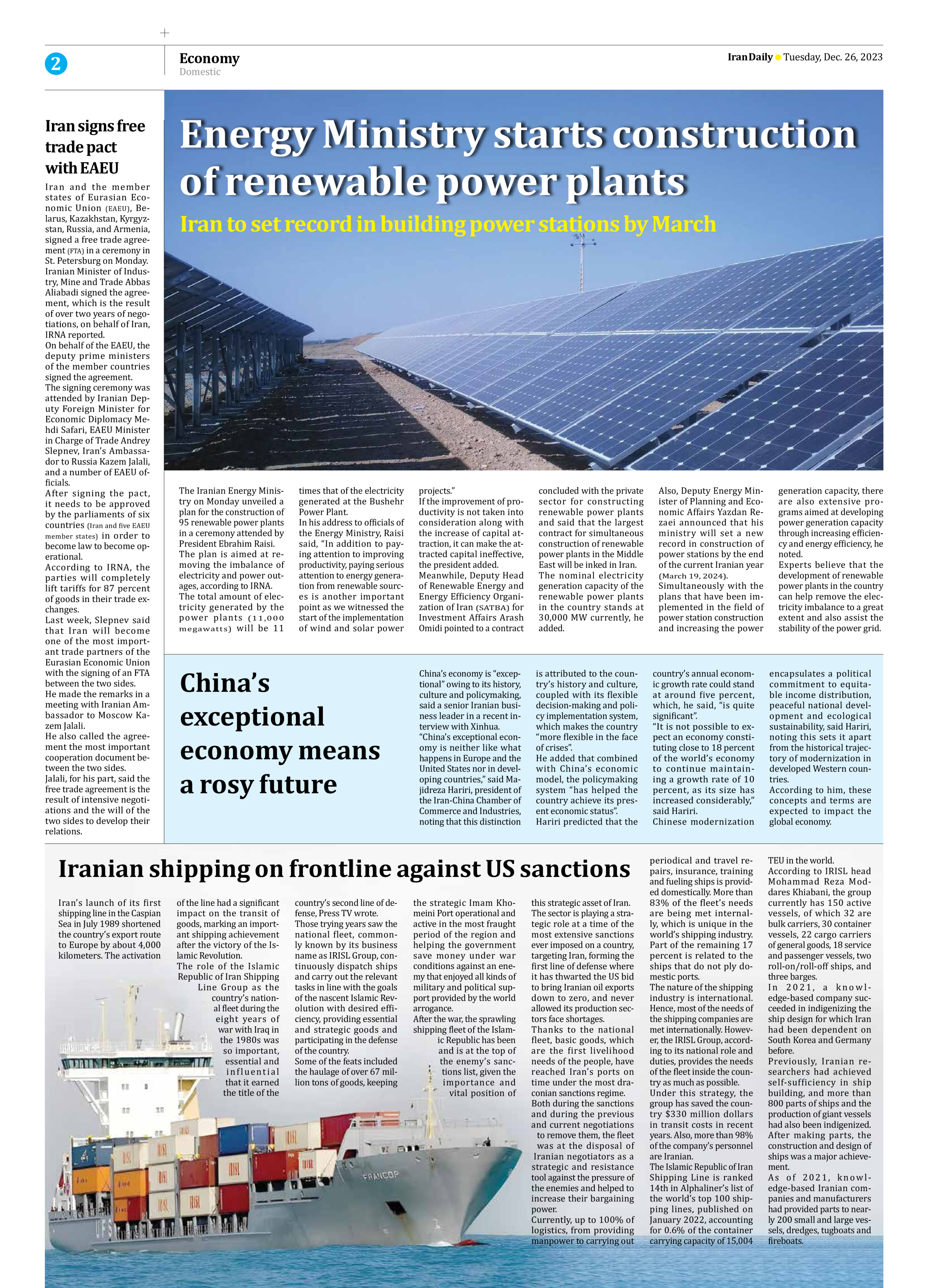
Iranian shipping on frontline against US sanctions
Iran’s launch of its first shipping line in the Caspian Sea in July 1989 shortened the country’s export route to Europe by about 4,000 kilometers. The activation of the line had a significant impact on the transit of goods, marking an important shipping achievement after the victory of the Islamic Revolution.
The role of the Islamic Republic of Iran Shipping Line Group as the country’s national fleet during the eight years of war with Iraq in the 1980s was so important, essential and influential that it earned the title of the country’s second line of defense, Press TV wrote.
Those trying years saw the national fleet, commonly known by its business name as IRISL Group, continuously dispatch ships and carry out the relevant tasks in line with the goals of the nascent Islamic Revolution with desired efficiency, providing essential and strategic goods and participating in the defense of the country.
Some of the feats included the haulage of over 67 million tons of goods, keeping the strategic Imam Khomeini Port operational and active in the most fraught period of the region and helping the government save money under war conditions against an enemy that enjoyed all kinds of military and political support provided by the world arrogance.
After the war, the sprawling shipping fleet of the Islamic Republic has been and is at the top of the enemy’s sanctions list, given the importance and vital position of this strategic asset of Iran.
The sector is playing a strategic role at a time of the most extensive sanctions ever imposed on a country, targeting Iran, forming the first line of defense where it has thwarted the US bid to bring Iranian oil exports down to zero, and never allowed its production sectors face shortages.
Thanks to the national fleet, basic goods, which are the first livelihood needs of the people, have reached Iran’s ports on time under the most draconian sanctions regime.
Both during the sanctions and during the previous and current negotiations to remove them, the fleet was at the disposal of Iranian negotiators as a strategic and resistance tool against the pressure of the enemies and helped to increase their bargaining power.
Currently, up to 100% of logistics, from providing manpower to carrying out periodical and travel repairs, insurance, training and fueling ships is provided domestically. More than 83% of the fleet’s needs are being met internally, which is unique in the world’s shipping industry. Part of the remaining 17 percent is related to the ships that do not ply domestic ports.
The nature of the shipping industry is international. Hence, most of the needs of the shipping companies are met internationally. However, the IRISL Group, according to its national role and duties, provides the needs of the fleet inside the country as much as possible.
Under this strategy, the group has saved the country $330 million dollars in transit costs in recent years. Also, more than 98% of the company’s personnel are Iranian.
The Islamic Republic of Iran Shipping Line is ranked 14th in Alphaliner’s list of the world’s top 100 shipping lines, published on January 2022, accounting for 0.6% of the container carrying capacity of 15,004 TEU in the world.
According to IRISL head Mohammad Reza Moddares Khiabani, the group currently has 150 active vessels, of which 32 are bulk carriers, 30 container vessels, 22 cargo carriers of general goods, 18 service and passenger vessels, two roll-on/roll-off ships, and three barges.
In 2021, a knowledge-based company succeeded in indigenizing the ship design for which Iran had been dependent on South Korea and Germany before.
Previously, Iranian researchers had achieved self-sufficiency in ship building, and more than 800 parts of ships and the production of giant vessels had also been indigenized. After making parts, the construction and design of ships was a major achievement.
As of 2021, knowledge-based Iranian companies and manufacturers had provided parts to nearly 200 small and large vessels, dredges, tugboats and fireboats.







